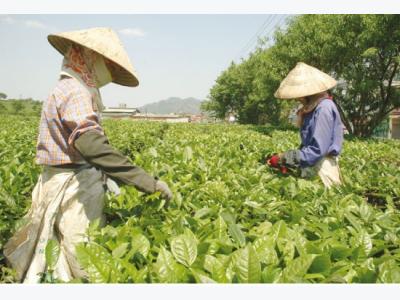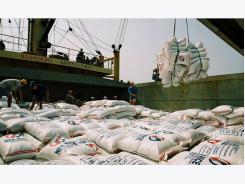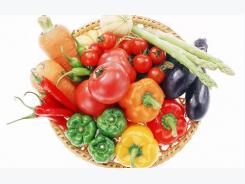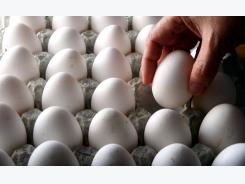Brewing sustainable tea development

Most tea exported by Vietnam is in raw form, despite the large growing areas and significant export revenues. To develop the tea industry in a sustainable manner and to enter discerning markets, tea production must be improved to meet the requirements of importing countries.
Tuyen Quang Province has focused on developing tea farming and branding in recent years
Poor quality
According to a Ministry of Agriculture and Rural Development recent report, tea exports reached about 7,000 tonnes worth US$10 million in February 2017 and 16,000 tonnes valued at US$23 million in the first two months of this year, a 1.4 percent drop in volume and a 6.9 percent drop in value against a year ago. The price of export tea also fell by 5.4 percent to US$1,471 per tonne this January.
Deputy Head of the Ministry of Agriculture and Rural Development’s Department of Crop Production, Le Van Duc, recently told Vietnam Economic News that the tea industry faces shortcomings, including the low quality of tea, the small scale of safe tea production and the low added value of tea products.
According to Vietnam Tea Association Deputy Chairwoman Nguyen Thi Anh Hong, Vietnamese tea exports to developed countries remain modest since only a small number of Vietnamese businesses meet standards set by importing countries. She also said that most tea exports are raw and only have few brand names. The low quality is largely due to improper cultivation, she said.
For this reason, Nguyen Thi Anh Hong underlined the need to promote special tea products among consumers, while tightening the link between the Vietnam Tea Association and the Ministry of Agriculture and Rural Development in order to revise the regulations on management of pesticides and provide training for farmers.
Increasing chain production
Vietnam Tea Association Chairman Nguyen Huu Tai said reorganizing tea production under a value chain is a basic solution. The Sustainable Tea Development Steering Committee and the Vietnam Tea Association suggested that the state allocate tea growing areas to tea manufacturers, which must be committed to buying from the farmers. For their part, farmers must be committed to selling standard tea to these plants.
In addition, state management agencies and businesses must closely observe the Food Safety Law and support farmers in order for them to partner with businesses and cooperatives in producing tea for export. There is also a need for big-name businesses to make their contribution to developing the tea industry and branding in an effort to change from raw materials to semi-finished products to increase value.
The first phase of the project to encourage tea farming households to join the sustainable and quality tea supply chain took place from November 2013 to December 2015 in the four provinces of Yen Bai, Phu Tho, Tuyen Quang and Lai Chau, using grant aid from the Netherlands and Unilever. After the first phase, 16 plants and 2,282 farming households received Rainforest Alliance (RA) certificates. The project helped farmers improve their knowledge of safe tea production at reduced costs but with higher productivity and better quality to ensure food safety, environmental protection and sustainable development. The products meet food safety standards set by the European Union and Japan.
The second phase of the project was launched in February 2017 in an aim to provide training and technical support for 15 plants and 16,500 farming households in order for them to get RA certificates and increase sustainable farming. It is expected that 25,000 tonnes of tea will be produced in a responsible manner, of which about 15,000 tonnes will be RA-certified and be sold to Unilever for export at a price US$1-2 per kilo higher than the average. Benefits for tea producers will be tremendous, including sufficient supply, increased productivity, food safety, a positive impact on society and better access to foreign markets and Unilever. As for farmers, the project will help them increase productivity, sustainability and income, while safely using chemicals.
Agriculture experts also underscored the need for the tea industry to change the way farmers grow tea, promote public-private partnership (PPP) to improve quality, and build brand names of Vietnamese tea products and tea businesses.
Unilever Vietnam Deputy Chairman Tran Vu Hoai:
After more than three years of PPP implementation for sustainable tea production in Vietnam, the quality of tea has improved significantly. Unilever imported only 4,500-5,000 tonnes of Vietnamese tea per year before the PPP. However, the figure has increased to about 11,000 tonnes per year now, and Unilever expects to buy 20,000 tonnes of Vietnamese tea per year in the short run.
Có thể bạn quan tâm
Phần mềm

Phối trộn thức ăn chăn nuôi

Pha dung dịch thủy canh

Định mức cho tôm ăn

Phối trộn phân bón NPK

Xác định tỷ lệ tôm sống

Chuyển đổi đơn vị phân bón

Xác định công suất sục khí

Chuyển đổi đơn vị tôm

Tính diện tích nhà kính

Tính thể tích ao hồ




 Talk helps businesses access agricultural processing technology
Talk helps businesses access agricultural processing technology  Egg farmers, producers cry foul over new import…
Egg farmers, producers cry foul over new import…